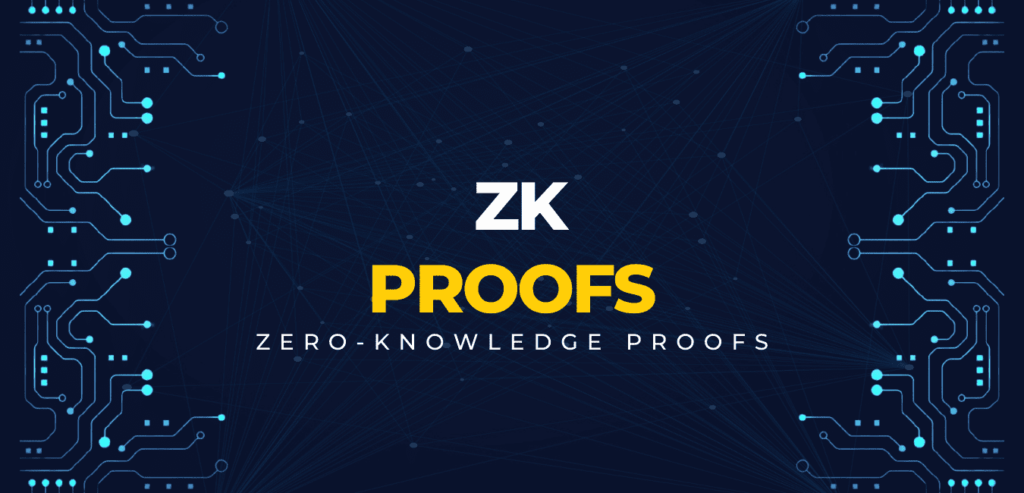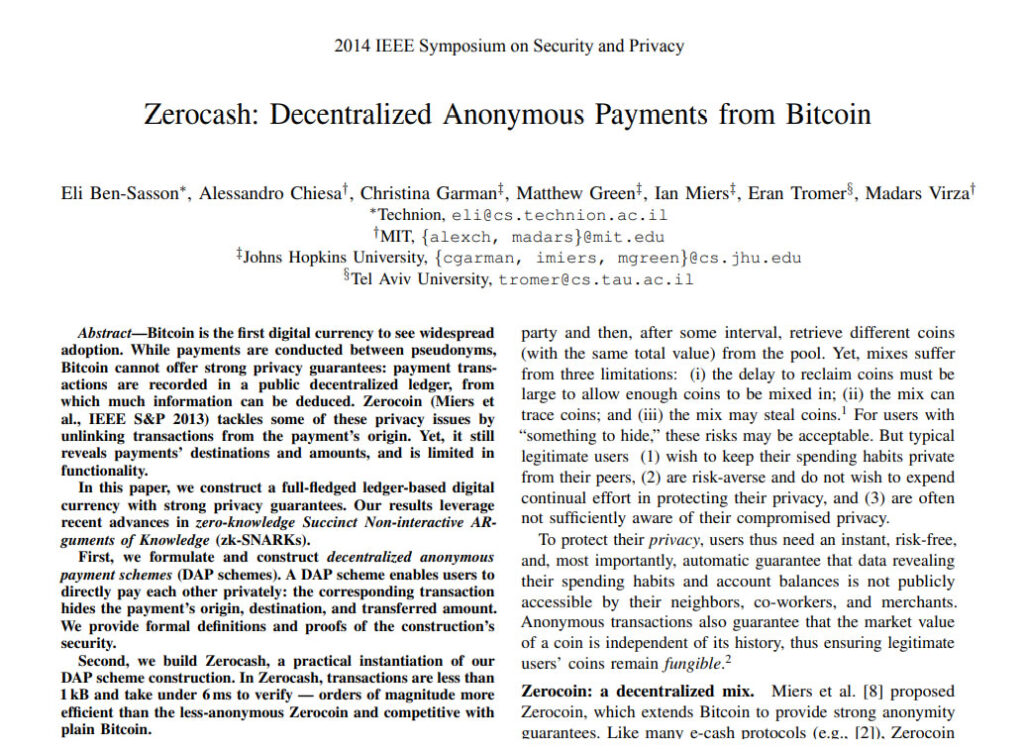A decade-old paper on zero-knowledge proofs wins IEEE’s prestigious award for its groundbreaking impact on practical ZK-proofs.

The award was presented to a research paper published a decade ago that is considered a “blueprint” for the first practical application of zero-knowledge proofs (ZK-proofs). It was granted by the Institute of Electrical and Electronics Engineers (IEEE), the preeminent technical professional organization globally.
The “genesis paper “Zerocash: Decentralized Anonymous Payments from Bitcoin reportedly received the “Test of Time” award at the IEEE Symposium on Security and Privacy for paving the way for ZK-proofs in crypto.
StarkWare wrote in a statement, “The award recognizes the paper’s extensive and enduring influence on computer security and privacy research and practice.”

Additionally, it implemented the initial practical implementation of the cryptographic method within a cryptocurrency to bolster privacy.
Authors Alessandro Chiesa, Christina Garman, Matthew Green, Ian Miers, Eran Tromer, Madars Virza, and Eli Ben-Sasson are honored with this distinction. Ben-Sasson established StarkWare, a blockchain-based scalability company.
“In retrospect, the award serves as a reminder that this paper propelled ZK to the forefront of blockchain research,” Ben-Sasson said, adding that it “ignited an ever-expanding fascination with the way in which it can contribute to the transformation of cryptocurrencies into the universally necessary technology that we all require.”
Using Zero-Knowledge Succinct Non-Interactive Arguments of Knowledge (zk-SNARKS), the authors of the paper devised Zerocash, a private payment protocol that conceals the number, origin, and destination of transactions.
Ethereum layer-2 solutions now frequently employ ZK-proofs to demonstrate the validity of on-chain data without disclosing its precise composition.
By facilitating techniques such as rollups and the trustless validation of large amounts of data off-chain, they can contribute to scalability. At present, prominent layer-2 networks such as StarkNet, Linea, zkSync Era, Scroll, and Polygon are implementing ZK-proofs.
There was a crackdown by regulators on privacy-preserving protocols. Nevertheless, ZK-proofs may provide viable solutions by safeguarding funds against sanctioned entities while preserving confidentiality.
Ben-Sasson emphasized the importance of maintaining privacy. In order to facilitate this, we shall incorporate ZK functionalities into our prover Stwo. This will enable developers to implement a variant of the Zerocash architecture on Starknet (and Ethereum) that is more scalable.
Ernst & Young, a member of the Big Four accounting firms, introduced an Ethereum-based solution incorporating ZK-proofs in April to assist its private business clients in executing complex contracts.
